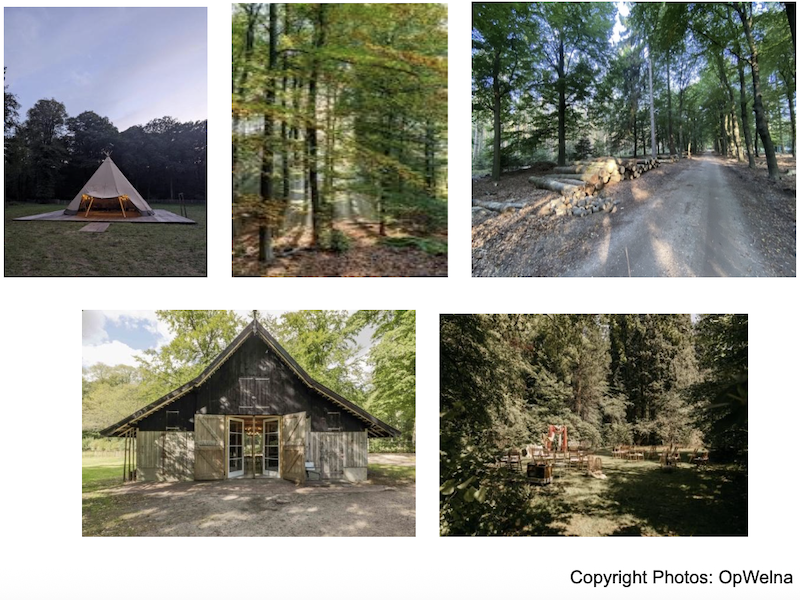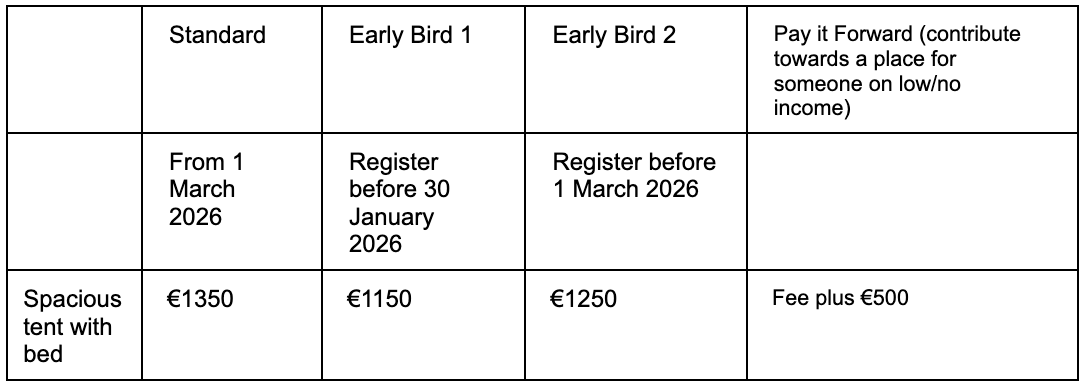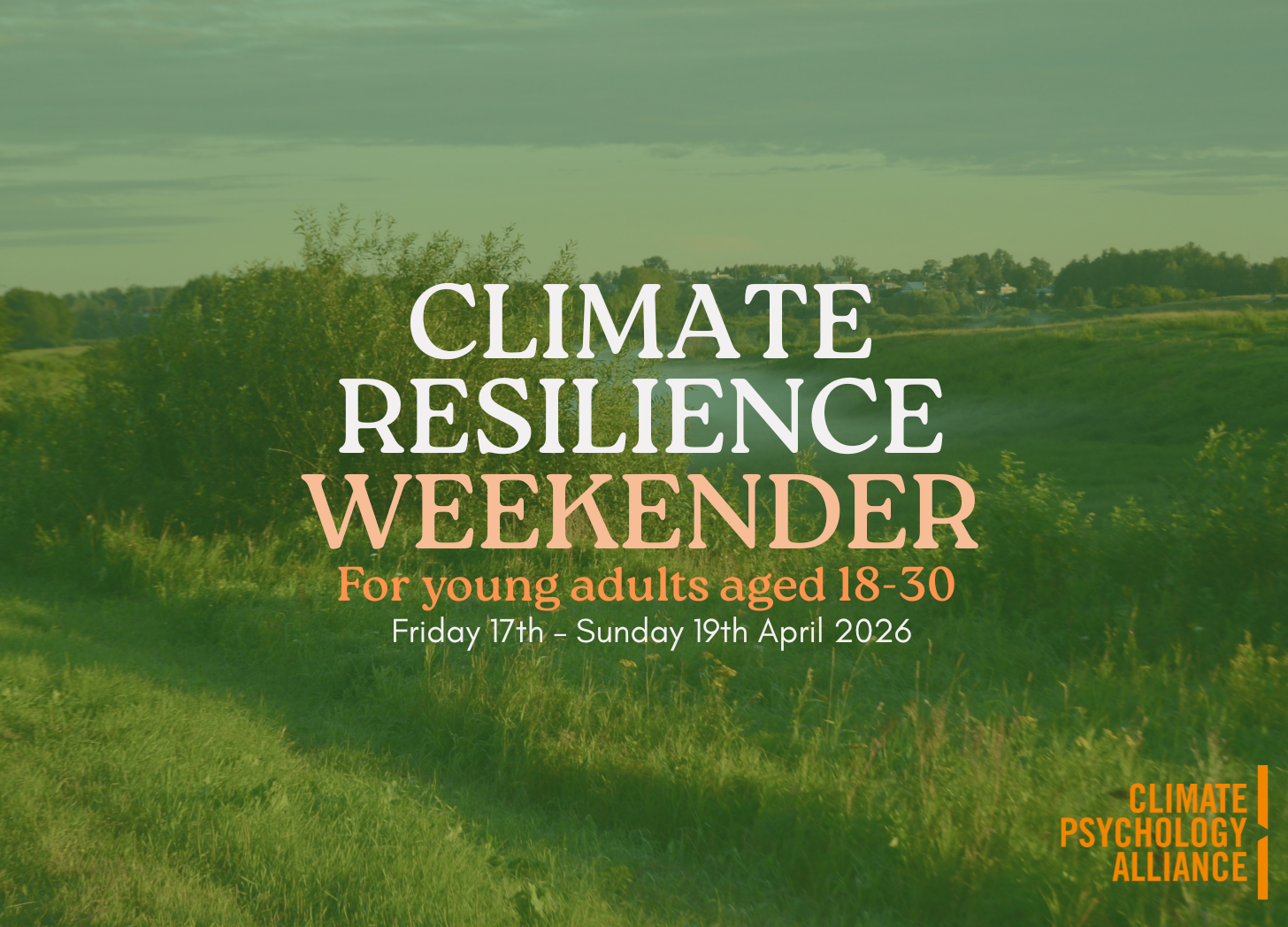We are pleased to share ‘Meeting Nature’, a new Group Relations Conference with Humans and Nature as Participants, which will take place in the Netherlands over a long weekend (Thursday - Sunday) in July/August 2026 - exact dates to be confirmed soon.
This event is for anyone who wants to develop their role in challenging the ways we think and act in our organisations when it comes to nature - if this sounds interesting to you, read on!
The old patterns of organisational life are straining. Accelerating climate change, rapid loss of biodiversity, and increasing scarcity of natural resources reveal that “business as usual” can’t take us much further. Many of us feel this, yet don’t have spaces to explore the deeper forces shaping our responses.
This conference offers such a space. By examining the unconscious dynamics that guide our relationship with nature, participants begin to notice blind spots, reconnect with systemic awareness, and rethink how leadership unfolds on an interconnected planet. An exploration that makes most sense if we invite nature to be part of it.
Immersed in Nature
Working with unconscious processes in relation to nature’s agency is most powerful when we are in direct contact with the natural world - which is why this conference will take place in a forest setting in the Netherlands, immersed in nature and offering accommodation on site. Nature is not a backdrop but a co-participant in our learning process.
What Participants Will Explore
Together, we will explore questions such as:
- How aware are we - as individuals and organisations - of nature’s presence?
- How do we relate and respond to that presence?
- To what extent do we integrate or ignore the natural world in our work?
- What can nature teach us about authority, boundaries, and collaboration?
- How does nature itself participate in our organisations and work?
- How do we include the natural world in our leadership and roles?
What Makes This Conference Unique
This is not a traditional training or retreat. It is a fully experiential learning environment, based on the Tavistock Group Relations Model which invites participants to explore group processes and their own ways of being across different group settings.
In this Group Relations Conference, the agency of the natural world is explicitly included. Rather than learning about systems, you will experience them. Throughout the conference, the natural environment* and encounters with nature will be active presences and participants in the conference alongside the human participants.
* The weather, animals, plants, landscapes, sounds and silence, renewal and adaptability, as well as the natural cycles, constantly relating to and influencing every creature - humans and non- humans alike.
A Living Learning Organisation
The conference functions as a temporary organisation for learning. There are no lectures or keynote speakers; rather, learning emerges from shared experiences and interactions. Participants will experience:
- Small & large study groups – exploring group and interpersonal dynamics
- Nature-based sessions – engaging directly with the more-than-human world, with the dark, with fire – including bivvying in the forest should you feel called
- Embodied practices – movement, silence, sensing, and working with dreams
- Intergroup and system events – exploring boundaries between human and non-human systems
- Integration & reflection spaces – connecting insights back to your professional life
Who Is It For?
This conference is designed for professionals working with people, systems, and change, including:
- Leaders and policymakers, in sustainability and ecology (governance, business and NGO)
- Growers, healers, activists and anyone curious about the boundaries between human and more-than-human systems
- Organisational consultants, facilitators, and team coaches working in the field of sustainability
- Representatives of religious communities
- Psychologists and therapists working in the field of climate and nature
No prior experience with Group Relations is required, all you need is an openness to reflect, experience, and learn in new ways. If you have any questions about participation do email This email address is being protected from spambots. You need JavaScript enabled to view it.
About the Organisers
The Nature Relations Innovation Initiative is a flexible alliance of professionals in the humanities working with leaders, organisations, and communities to foster sustainable thinking and practice through experiential learning and events. Its work ranges from (action) research to executive coaching and supporting change initiatives.
The Climate Psychology Alliance is pleased to endorse this group relations conference, along with:
Together, our organisations represent a tradition of engaging with real human, social, and cultural relations, bridging organisational life and inner development.
Venue
Op Welna is an estate on the northern edge of the Veluwe in the Netherlands, located between Epe and Nunspeet in Gelderland. It consists of 600 hectares of forest, heathland and grassland, dotted with several comfortable houses and outbuildings for meetings. The vast forests, silence, and tranquillity make it a unique place in the Netherlands. It can be reached by car or by train – Nunspeet train station – from where we will arrange a connection to the venue.

Conference Staff
Director: Rembrandt Zegers
Organising committee: Anna-Rosa le Roux, Niels van Steenbergen, Rembrandt Zegers
This conference functions with the help of ‘consultants’ - staff whose role it is to keep the boundaries of the Group Relations approach in the work all members of the group (including staff) will be doing together. ’Boundaries’ here refers to those of time, place and organisation of the programme. These staff members are available as consultants during the conference to support everyone to stay on task exploring the unconscious while members of the group engage with each other and nature. The full ist of consultants will be shared in due course.
How to register your interest
If you'd like to reserve a place, or simply know more, please contact This email address is being protected from spambots. You need JavaScript enabled to view it.. You'll then be sent the application form for personal information like dietary needs. Acceptance to the conference is limited to 30 - 35 participants.
Fees and Discounts
The Nature Relations Innovation Initiative intends to make this event accessible for all who wish to attend. See Sponsorship below.
All quoted fees cover conference participation, accommodation and meals. Travel is not included but the conference team will be happy to advise you about travel in the Netherlands. We'll be staying in spacious, comfortable tents with real beds and excellent bathroom facilities close by.

Sponsorship
The Nature Relations Innovation Initiative wishes to welcome a wide range of people to this event including those most active in organisations and groups trying to protect the environment who are often not, or not well, paid.
The financial support of those who can afford it is welcomed. If you are willing and able to sponsor someone to attend please choose the Pay it Forward rate, or please contact This email address is being protected from spambots. You need JavaScript enabled to view it. to donate a different amount and become a sponsor.
FAQs
Do I need prior experience in Group Relations?
No. Curiosity and willingness to engage with the process are all that’s required. Is the conference suitable for people outside organisational roles? Yes. Anyone interested in exploring the intersection of human and natural systems is welcome.
Will the program involve outdoor activities?
Yes. Nature is a co-participant in this experience, and some sessions will take place outdoors.
If you have any other questions, please contact This email address is being protected from spambots. You need JavaScript enabled to view it. who will be happy to help.










